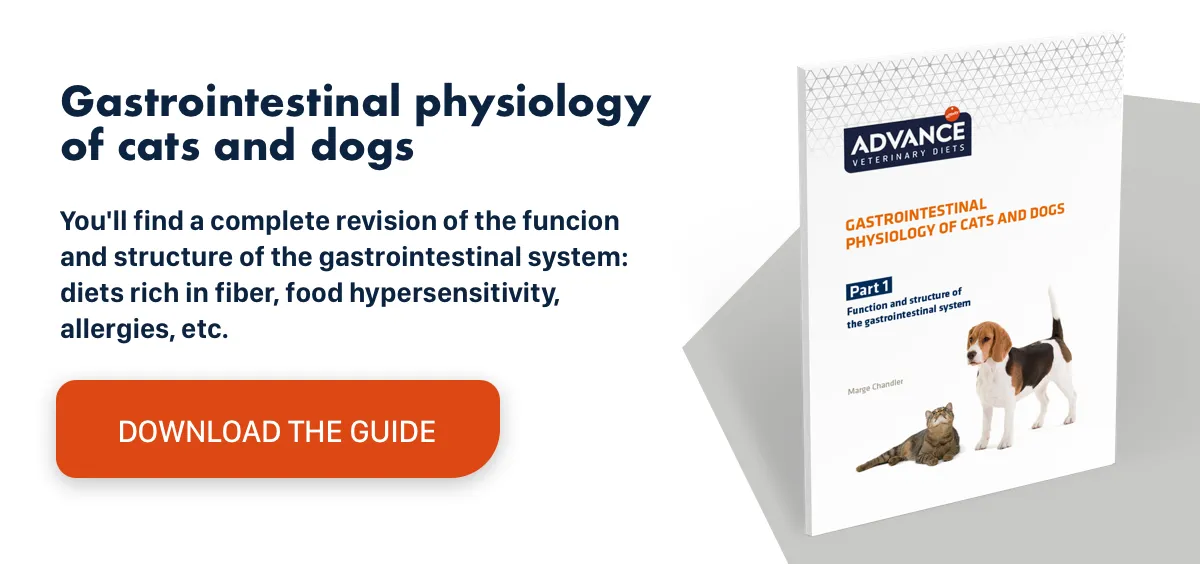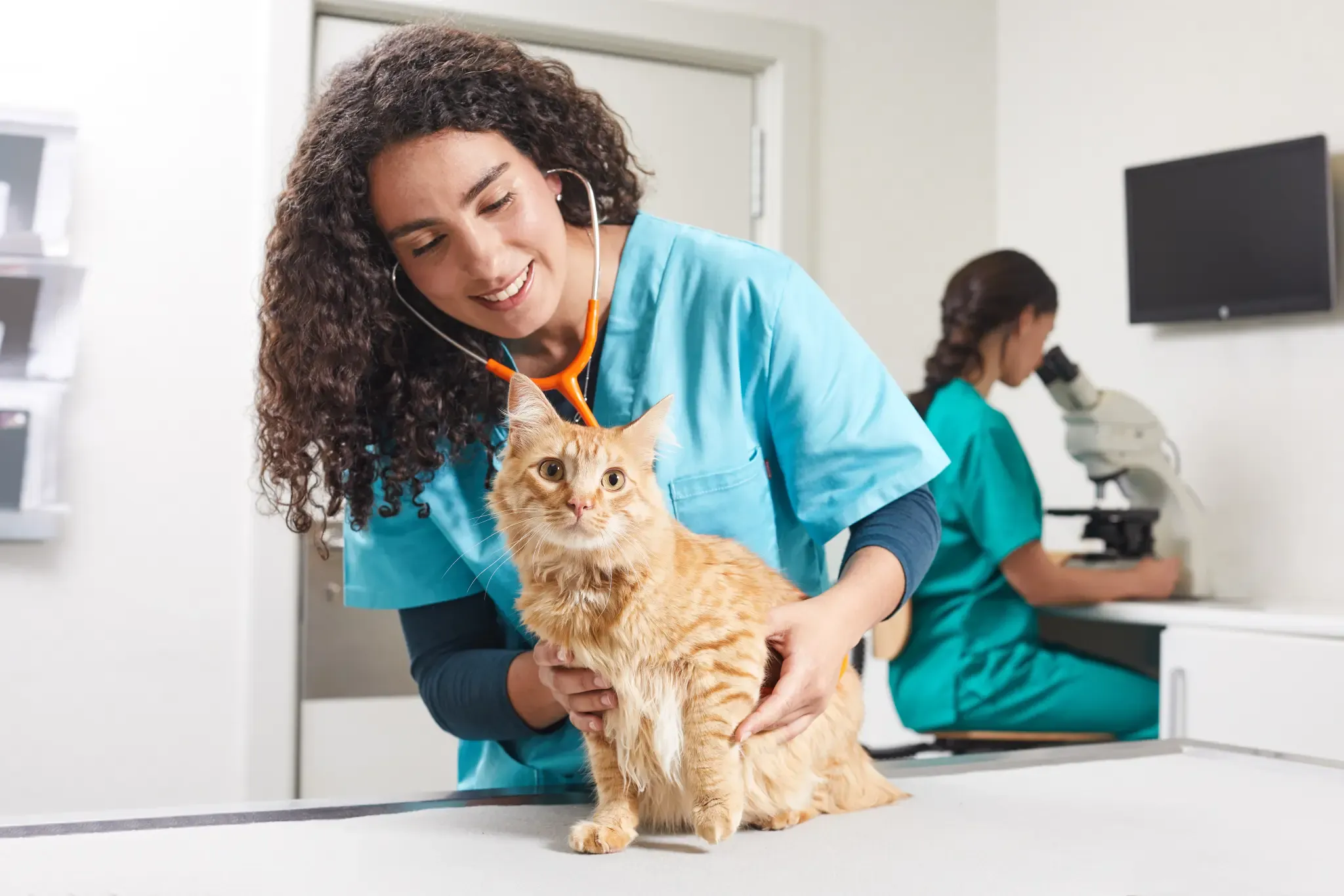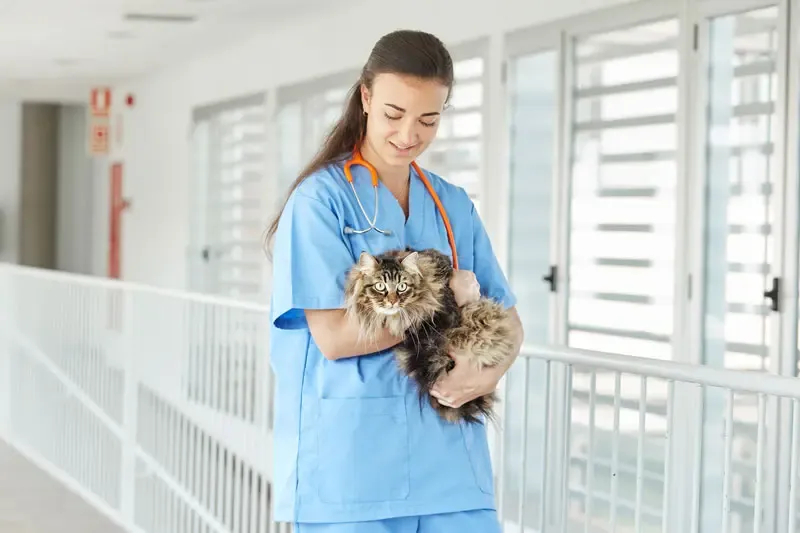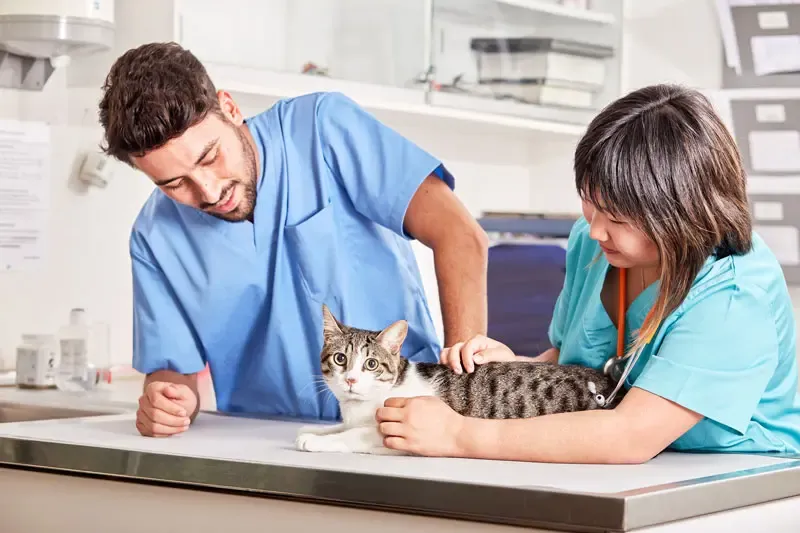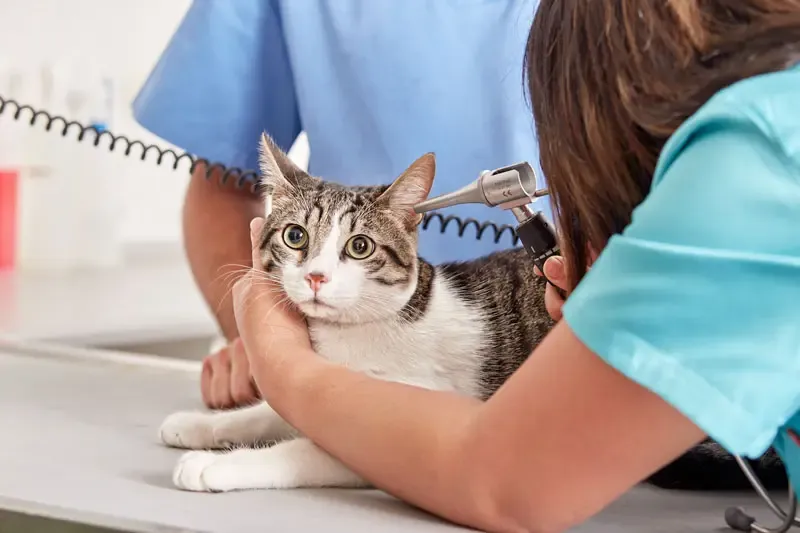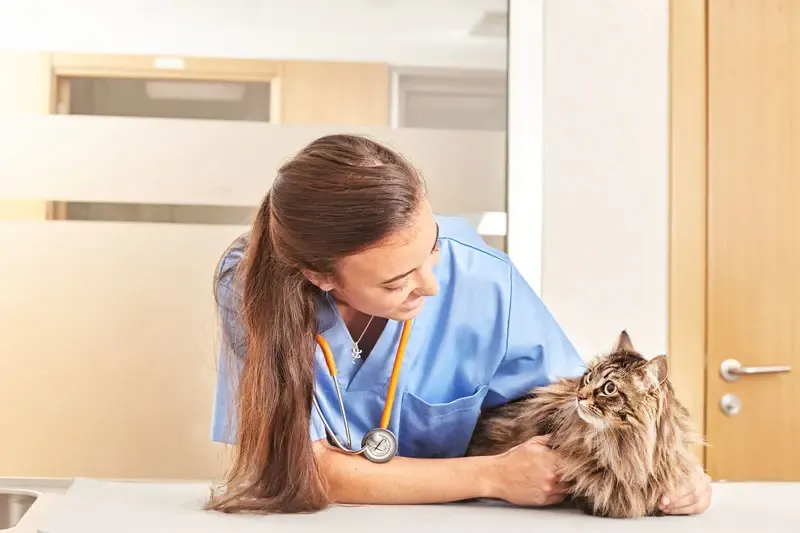Infections that course with diarrhoea in cats are caused by various microorganisms: viruses, bacteria and parasites. Some of the parasites that can cause infectious colitis are:1
- Toxoplasma
- Coccidia
- Giardia
- Worms such as ascaris or hookworms.
Clinical signs of colitis in cats
Besides changes in stool consistency and colour, the diarrhoea caused by a parasitic infection may be accompanied by other clinical signs, such as:1
- Haematochezia (blood in faeces). Blood in the faeces is a sign of damage to the intestinal mucosa, with a possible risk of septicaemia and, consequently, the onset of fever.
- Fever.
- Tenesmus.
- Vomiting.
- Dyschezia.
- Polydipsia.
Differential diagnosis
The signs mentioned above are characteristic of different kinds of diarrhoea. Vomiting and polydipsia tend to be associated with problems in the small intestine, while tenesmus and dyschezia are typical of the large intestine.1 Not all parasitic infections affect the digestive system in the same way. Diarrhoea of the small intestine usually involves Giardia and Toxoplasma, while that of the large intestine, or mixed diarrhoea, is associated with Coccidia.2
Diagnosis
A thorough anamnesis and physical examination are necessary to determine if there are any complications associated with the diarrhoea or if other organs are affected as a result of the infection.1
More tests such as a blood count, blood chemistry and a stool analysis can be performed to determine the origin of the diarrhoea, as anaemia is indicative of parasitic infestation. A stool analysis is essential in all diarrhoeal processes. It involves a macroscopic examination of stool consistency, colour and presence or absence of blood; and a microscopic examination to identify any parasites by faecal flotation.1
Special stains can also be used to help confirm the presence of any fat, muscle fibres or blood. Other techniques are useful for studying any inflammatory processes in the intestinal tract, for example, antigen tests, methylene blue or Lugol’s iodine solution staining for Giardia and other protozoa, cell cultures to detect protozoa, and PCR or monoclonal antibodies to confirm the presence of Giardia or Coccidia in difficult cases.2
Treatment
Treatment of the diarrhoea should focus on the primary cause. Once a positive result has been confirmed, treatment consists of systemic antiparasitic drugs or antibiotics, while bearing in mind that the latter could be counterproductive and prolong or aggravate the diarrhoeal process as they are not specific and can destroy part of the intestinal flora.2
Treatment should also be symptomatic, preventing dehydration through a sufficient fluid intake and stomach protectors. If the cat continues to behave normally despite the onset of diarrhoea, fasting for 24–48 hours may be enough to resolve the problem. A soft diet is indicated if the initial symptoms are small intestine diarrhoea or vomiting, and a high fibre diet is indicated for large intestine diarrhoea.2
Prevention
To prevent parasitic colitis in cats, their contact with sources of infection must be minimised, that is, they should not be allowed to leave the house or when they do, they should not be allowed to hunt. Vaccination can be an effective treatment for litters of kittens that suffer recurrent infections from agents such as Giardia.2
Another preventive strategy is deworming , taking into account each cat’s circumstances and with close adherence to the dosage schedule.
The correct diagnosis of infectious colitis as the cause of diarrhoea is important for optimising patient management. As such, it is important to remember that diet plays a key role in diarrhoeal processes.3 So, even if the diarrhoea is resolved, patients should continue to eat a soft or prescription diet, such as ADVANCE gastroenteric , for at least 3 days.
